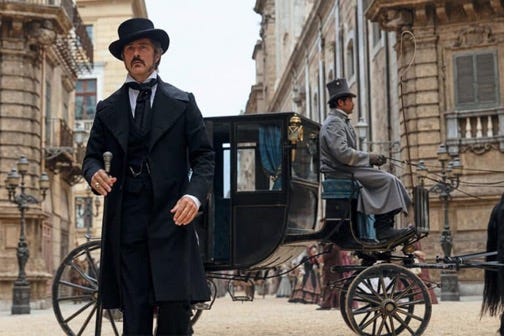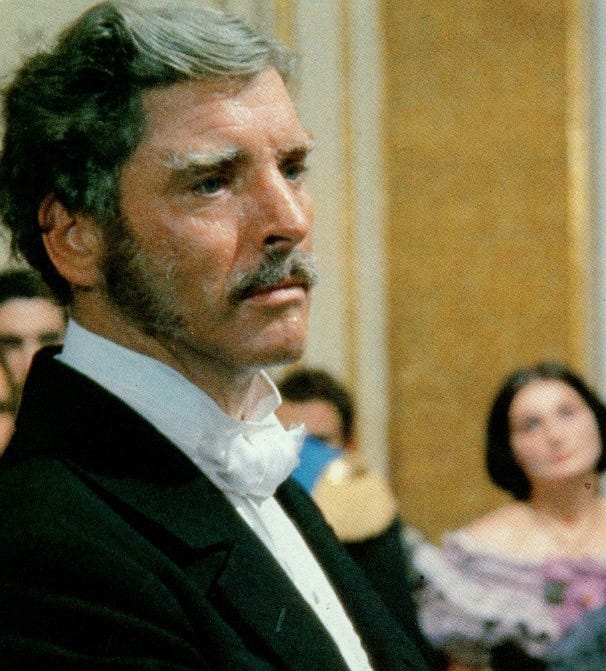The Endgame
Newsletter #106 - The Leopard
Toronto, May 18, 2025
The Leopard
We are creatures of our time. How most people think and behave reflects the period of history and the kind of society they live in. (This rule does not apply to rebels, eccentrics and geniuses). That’s why it’s unfair to judge a person from the past by the mores of today.
But politics and culture are not static. They constantly shift beneath our feet. Unless we are quick, our thinking and behaviour can easily become politically and socially inappropriate by prevailing standards. The longer you live, the more likely this is to happen. We dance with exogenousity. Sometimes the dance is a slow waltz, sometimes it’s a tricky foxtrot. Some people are better at dancing than others. Most want to catch the contemporary beat.

Even if you adapt once in your lifetime, that may not be enough. The world is kaleidoscopic and confused. Everything changes at great speed and changes again. Politics lurch from the limp left to the rabid right and back again. Crises shapeshift. You have to move fast, and often, to keep pace. Most people can’t do it or won’t do it. It’s particularly hard for the elderly who are culturally committed to an old order. Their natural reaction is to reject change, to be curmudgeonly, angry, even bitter. Or just give up.
I was thinking about all of this recently as I finally read Guiseppe de Lampedusa’s famous novel Il Gattapardo (The Leopard). The story is set in Sicily during the Risorgimento, the revolutionary political and social movement that led to the unification of Italy in 1861. Don Fabrizio Corbera, Prince of Salina, is the Leopard, a melancholic Sicilian nobleman whose aristocratic way of life is being replaced by a new and—to him—dangerous and uncivil bourgeois order.
Don Fabrizio tells Father Pirrone, the family priest: “We live in a changing reality to which we try to adapt ourselves like seaweed bending under the pressure of water.” Later, a government official, Cavaliere Aimone Chevalley di Monterzuolo, comes to the Prince’s palace and asks him to join the newly formed Italian Senate. Don Fabrizio declines. He tells Chevalley: “I belong to an unlucky generation, swung between the old world and the new, and I find myself ill at ease in both.” Chevalley “understood Don Fabrizio’s bitterness and discomfort ... And he found himself pitying this prince without hopes...” The Prince tells Chevalley: “We were the Leopards and the Lions; those who’ll take our place will be little jackals, hyenas...”
In 1883 Don Fabrizio dies from a stroke, alone in a Palermo hotel room. As he is dying, he muses: “[T]he last of the Salina was really he himself, this gaunt giant now dying on a hotel balcony. For the significance of a noble family lies entirely in its traditions, that is in its vital memories; and he was the last to have any unusual memories...”
How do you hang on to unusual memories? How do you preserve your integrity faced with monumental changes beyond your control? The Leopard’s nephew, Tancredi, a man of the hour, counsels pragmatism. He tells Don Fabrizio, in a famous (and, I think, meaningless) aphorism: “If we want things to stay as they are, things will have to change.”
Tancredi embraces the new order and becomes an important person in the new Italy. But the Leopard prefers aristocratic resignation to popular pragmatism, memories of the past rather than participation in the present. After all, the present is occupied by little jackals and hyenas. The Leopard will not be a part of that.
*****
Some reader comments on Endgame #105 (“A complete life,” about the suicide of Daniel Kahneman at age 90)
From Julius Grey, Montreal lawyer and author: “It sounds sensible and even idyllic, but I think MAID is a terrible moral example and its availability led a brilliant man like Kuhneman, whom I have often quoted and whom I admire, to make an irrational choice disguised as acceptance of the inevitable.”
From Naomi Duguid: “We can't say he rushed into death. At ninety, with failing kidneys, he opted to exit with his faculties intact. Seems a highly reasonable choice.”
From David Wolinsky: “For me, after a decade of various forms of cancer, diabetes, neuropathy, broken bones, seeming endless root canals, a never ending battle with weight control, two Covids, and bidding farewell to many of those I cared for, I can’t imagine anything that would cause me to voluntarily preclude one more sunrise. In many respects life sucks, but not enough to voluntarily forego one more conversation with my kids, grandkids, and friends, one more Lee Child Jack Reacher book, one more possible season of Justified, one more burger fries and milkshake, or one more sunny day in White Rock.”
Finally, from a Nova Scotia reader: “So Philip, it’s spring in Nova Scotia and as I’m sure you know that means endurance…..ice water rain, gloomy skies with the odd tease of a sunny warm day. And now you’re asking me this? All I can say is ask his partner and children. Who am I to question his decision? And now I’m going to tuck that question away and get up from the couch and make bread cuz our daughter is visiting today.”



exogenousity - having never encountered this word before, I like the look and sound of it. Will I ever have the opportunity to use it or even remember it? I don't know.
Interesting ... and timely. There appears to be a great deal of conversation currently about 'change' but this is a great reminder that change is always occurring. Some change is desired - some, not so much. I must add 'The Leopard' to my reading list. I am a fan of Peter Senge's book 'The Dance of Change ... The Challenges to Sustaining Momentum in Learning Organizations'.